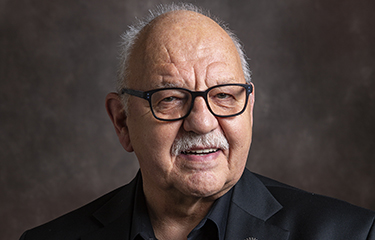The Jamestown S'Klallam Tribe in the U.S. state of Washington, operates the shellfish firm Jamestown Seafood and the now-dormant Salish Fish. The tribe's steelhead and sablefish farming project – a joint venture with Cooke Aquaculture – is in the midst of a legal battle to restore what it claims is its treaty right to engage in net-pen aquaculture.
In December 2022, the Tribe filed suit against the Washington Department of Natural Resources (DNR) and Washington Commissioner of Public Lands Hilary Franz, arguing its issuance of a blanket ban on commercial net-pen aquaculture via executive order was unlawful. The Tribe argues that fish farming in the 21st century is environmentally safe as proven by science.
W. Ron Allen, chair and CEO of the Jamestown S'Klallam Tribe, told SeafoodSource he is continuing to pursue commercial aquaculture opportunities for the Tribe, including ways to restore its right to use net-pens as an extension of their treaty seafood operations. He provided an update on the state of the Tribe’s lawsuit against Franz and the DNR.
SeafoodSource: The public perception in Washington of finfish farming was dinged with the escape from the Cooke farm in 2017, and there have been political repercussions from that. Can you succeed with a project in an industry that currently doesn't have widespread public support in the state?
Allen: Our Tribe feels that we have done a very good job of showing [it] is an excellent steward of the resources based on our historical cultural traditions. And, that we have taken progressive actions to counter the roots of climate change and basically correcting mistakes in poor stewardship practices that mankind has made over the years. That responsible image is what we're hanging our hat on. When anybody tries to say to us that we are going to engage in this industry at the expense of the degradation of the environment, we can counter that we’re not the first who are going to do something that people don't understand well, and that they should do their homework before they criticize.
Most folks are just headline readers and jump at their first impression. They don't want to read the facts because the facts don’t fit their perception. We even have Tribes who oppose us based on bad science notions, and some of them actually raise fish in pens themselves through their delayed fish pens. We would argue that they're hypocritical by saying what they're doing is not fish farming. And we're saying that their practices are the same – they’ve got pens with salmon in them, and they’re feeding them and raising them until they release them. So yeah, it's a bit of hypocrisy, but it fits their paradigm, I guess. We're just going to work to continue to campaign to correct misperceptions of the industry.
SeafoodSource: What's your feeling around the sentiment toward net-pen aquaculture or finfish aquaculture in Washington? Is the net-pen aquaculture industry in the state irretrievably gone or broken?
Allen: It's going to be awhile for us to get the industry back on its feet in the Salish Sea. For us, we're going to continue to pursue it and try to figure out how to make it work. We have lots of ideas consistent with how Cooke ran their operations, but it’s about economies of scale to make the business viable. So just knowing what it takes to make the industry work and the numbers to work for the industry relative to the hatchery, the number of pens, the production and processing necessary to make it work. Cooke doesn't know yet what they're going to do with their hatchery, which is essential to the success of fish-farming operations. It's mothballed at this point, and I haven't heard about what's happening with that facility, other than it's sitting there, basically.
SeafoodSource: If you win back the right to farm steelhead and sablefish in net-pens, would your tribe go it alone without Cooke as a partner, or would you look for another industry partner? How would you proceed if Cooke is not interested?
Allen: Well, Pacific Seafood located in Portland, Oregon, is in the industry and we talked to them briefly. They had a high interest in our steelhead production, but honestly, we haven't had any discussions with them since the revocation of the leases. If Cooke bailed, that might be something we might explore. But we haven't made those decisions yet. I think one of the biggest factors is the people and the expertise we lost with the revocation decision. There were companies that had been part of the industry in Washington state for over 40 years, so there was an extremely valuable knowledge base. That has not necessarily been lost at this point, but the longer time goes by, the less accessible those people are going to be to come back and help bring this back.
SeafoodSource: Is there a potential that you work with a land-based producer on your vision for aquaculture production? There was talk of a partnership with Salmon Evolution. Where does that stand now?
Allen: We met with Salmon Evolution to discuss their flow-through seawater farms, and yeah, we were interested. Their presentations demonstrate that it is viable and it's working in Norway – that was compelling. But …
Photo courtesy of Jamestown S’Klallam Tribe








